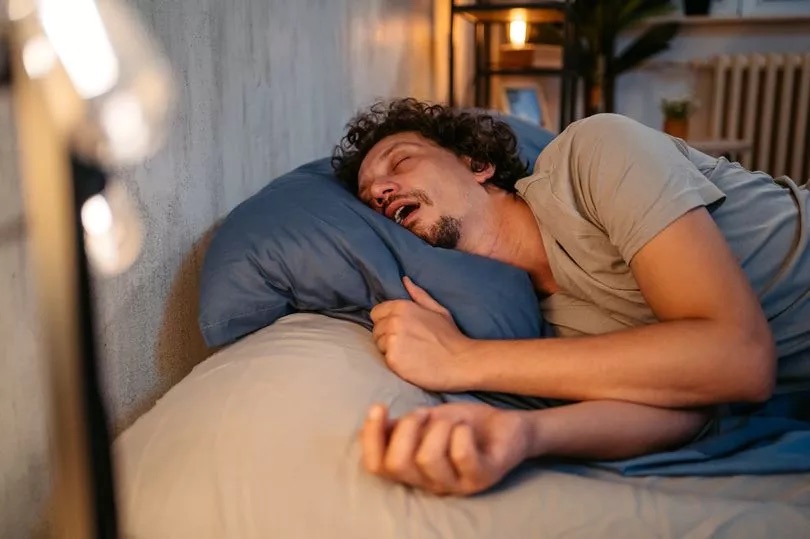A recent research conducted by Flinders University has identified regular nighttime snoring as a potential early indicator of high blood pressure. Utilizing advanced home-based monitoring technologies over an extended duration, researchers examined the link between snoring frequency and blood pressure levels.
This comprehensive study, the largest of its kind, revealed that individuals who snore regularly during sleep are more likely to experience elevated blood pressure and uncontrolled hypertension, especially among overweight middle-aged men.
Dr. Bastien Lechat, the lead author of the study, highlighted that this is the first time researchers have objectively established a significant association between frequent nighttime snoring and high blood pressure. The findings were published in the Nature Digital Medicine journal.
If you or someone you know is concerned about high blood pressure or nighttime snoring, consulting a healthcare professional for advice and guidance on managing or treating these conditions is recommended. 🩺
Dr. Lechat, the lead researcher, simplified the findings by noting that 15% of the study participants, primarily overweight men, snored regularly for more than 20% of the night on average. The study established a strong correlation between this habitual snoring and elevated blood pressure levels.
The research underscores the importance of considering snoring in healthcare, particularly in the context of managing hypertension and addressing sleep-related issues.
It’s crucial to recognize that snoring, a common issue, often carries underestimated health risks. Snoring is frequently linked to sleep apnea, a condition where breathing pauses abruptly during sleep. If you or someone you know experiences frequent snoring and is concerned about potential health consequences, seeking advice and guidance from a healthcare professional is advisable. 😊
According to Professor Danny Eckert, Director of Sleep Health at Flinders University and the senior researcher of the study, regular snoring nearly doubled the risk of uncontrolled hypertension. For individuals who regularly snored and also had sleep apnea, this risk nearly doubled once again compared to those who did not snore regularly.
The study also highlighted that snoring alone could serve as an early indicator of high blood pressure because poor sleep quality caused by snoring may elevate the risk of developing hypertension.
It’s important to note that hypertension refers to sustained high blood pressure, which can lead to serious health conditions such as heart failure, stroke, heart disease, or kidney disease.
The research utilized data from sleep trackers equipped with under-mattress sensors to detect snoring and sleep apnea, alongside an FDA-registered at-home blood pressure monitor. Spanning nine months, the study involved over 12,000 participants worldwide.
If you have concerns about high blood pressure, sleep disorders, or snoring, it’s advisable to consult a healthcare professional to determine the most appropriate steps forward.
Dr. Lechat described this study as the most comprehensive investigation to date into the relationships between snoring, sleep apnea, and hypertension, employing objective methods to monitor participants in their homes. The study yields crucial insights into how snoring might affect the risk of hypertension. Dr. Lechat emphasizes the importance of including snoring in clinical assessments and treating sleep disorders, especially in the context of managing hypertension.
The findings of the study pave the way for further research to explore whether interventions targeting snoring could potentially reduce hypertension and its associated risks.
If you are experiencing snoring along with symptoms like poor sleep quality, excessive daytime sleepiness, or breathing issues during sleep, it is advisable to discuss these concerns with your doctor or a specialist who may recommend a sleep study.
Prioritizing your health is crucial, so if you have any worries about snoring, sleep disorders, or high blood pressure, seeking advice and guidance from a healthcare professional is highly recommended. 😊
